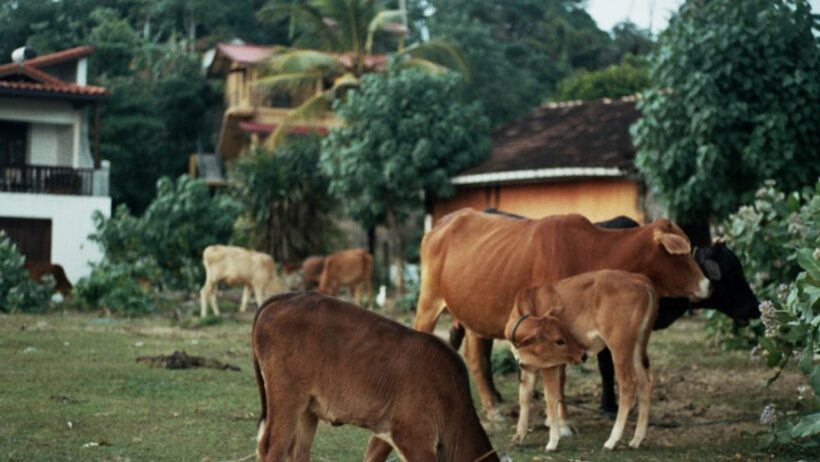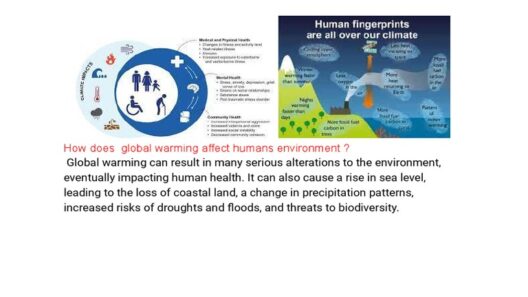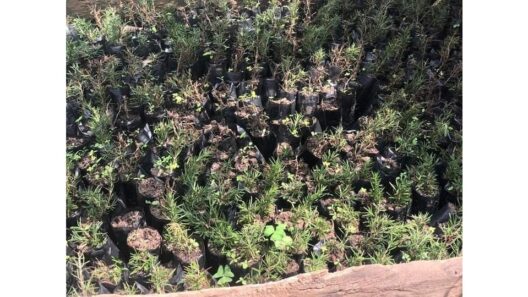As the world grapples with the looming threat of climate change, one might ponder, “Can something as simple as altering dietary habits truly make a difference?” At first glance, the connection between our meals and the planet may seem tenuous, but upon closer examination, it becomes strikingly clear that the meats we consume can have profound implications on global warming. With livestock production accounting for a sizable portion of greenhouse gas emissions, the challenge of eating less meat emerges as a tangible, effective solution.
The production of meat, particularly beef and lamb, significantly contributes to the accumulation of greenhouse gases in our atmosphere. Livestock farming releases methane—a potent greenhouse gas—during digestion. Methane, while less prevalent than carbon dioxide, has a much greater heat-trapping ability in the short term. This means that the more meat we consume, the more we inadvertently exacerbate the problem of global warming. Furthermore, the land needed for grazing and growing animal feed not only leads to deforestation but also contributes to biodiversity loss.
Let’s explore the mechanics behind this intricate relationship. At the heart of the issue lies the feed-to-meat conversion ratio. It takes significantly more resources—including water, land, and energy—to produce beef compared to plant-based foods. For instance, to yield one kilogram of beef, it takes around 15,000 liters of water. Comparatively, vegetables and grains require considerably less. This stark contrast highlights the urgency in reassessing our dietary preferences. If every individual made a conscious effort to reduce meat consumption, the aggregate effect could lead to a substantial decrease in resource usage and emissions.
Switching gears, let’s consider the biodiversity crisis intertwined with meat production. The conversion of forests into pastureland leads to habitat destruction for countless species. A reduction in meat consumption presents a compelling opportunity to mitigate this damage. By choosing plant-based diets, we can alleviate pressure on ecosystems and help preserve the rich tapestry of life on our planet. Every bite of plant-based food taken in lieu of meat represents a vote for environmental sustainability.
Moreover, consider the economic impacts tied to meat production. It is vital to understand that livestock farming is not only resource-intensive but also financially burdensome in the long run. Governments often subsidize these industries, draining public funds that could be allocated toward renewable energy or sustainable agriculture initiatives. By opting to reduce meat consumption, consumers not only foster a healthier planet but can also redirect economic resources toward innovative solutions that promote sustainability.
Now, here comes the playful challenge: imagine committing to a “Meatless Monday” or even a “No Meat Month.” Could this small, manageable change ripple outwards, creating a more significant impact? By integrating such initiatives into our lives, we can cultivate a culture of sustainability. Sharing meals that are rich in plant-based options opens discussions about their benefits, potentially influencing peers and family members to follow suit. These challenges serve as catalysts for deeper conversations about food, health, and the environment.
Let us also consider the personal health benefits that accompany a reduction in meat intake. Numerous studies demonstrate that diets high in fruits, vegetables, nuts, and whole grains are connected to lower risks of heart disease, obesity, and diabetes. By eating less meat, individuals can enhance their well-being while simultaneously contributing to the fight against climate change. A dual-purpose approach toward individual health and planetary stewardship is both laudable and achievable.
Not to be overlooked is the growing array of plant-based alternatives available today. Innovations in food technology have birthed numerous meat substitutes that satisfy cravings without the environmental repercussions. As these products gain popularity, they fill a widening gap between traditional meat consumption and sustainable dietary practices. Increased accessibility and variety mean that even longstanding meat lovers can enjoy their favorite flavors guilt-free.
Furthermore, the collective choice to reduce meat consumption extends beyond the individual. As consumer preferences shift, companies will inevitably adjust their production practices. The food industry is beginning to acknowledge this demand for sustainable options, offering increasingly inventive plant-based products and menu items. This transformation signals a significant cultural shift, underscoring the fact that every customer holds considerable power in steering the marketplace toward a more sustainable future.
Indeed, the cumulative impact of these decisions becomes significant. When millions of people across the globe decide to eat less meat, the resultant demand for plant-based foods skyrockets. This transition is interconnected with significant changes in agricultural policy, food production methods, and ultimately, the very fabric of our society’s interaction with food. Not only does this challenge the status quo, but it also presents us with the opportunity to advocate for broader systemic changes in food production.
As we conclude our exploration of this vital topic, it’s clear that eating less meat is not merely a dietary preference but a responsibility. This choice reverberates across various facets of our lives: environmental sustainability, health, economic stability, and ethical considerations regarding animal welfare. It’s a powerful statement that can resonate within families, communities, and beyond. We stand at a crossroads, facing a critical decision: will we embrace this challenge and usher in a sustainable era? The choice is in our hands, and even the smallest changes can lay the groundwork for monumental progress.







